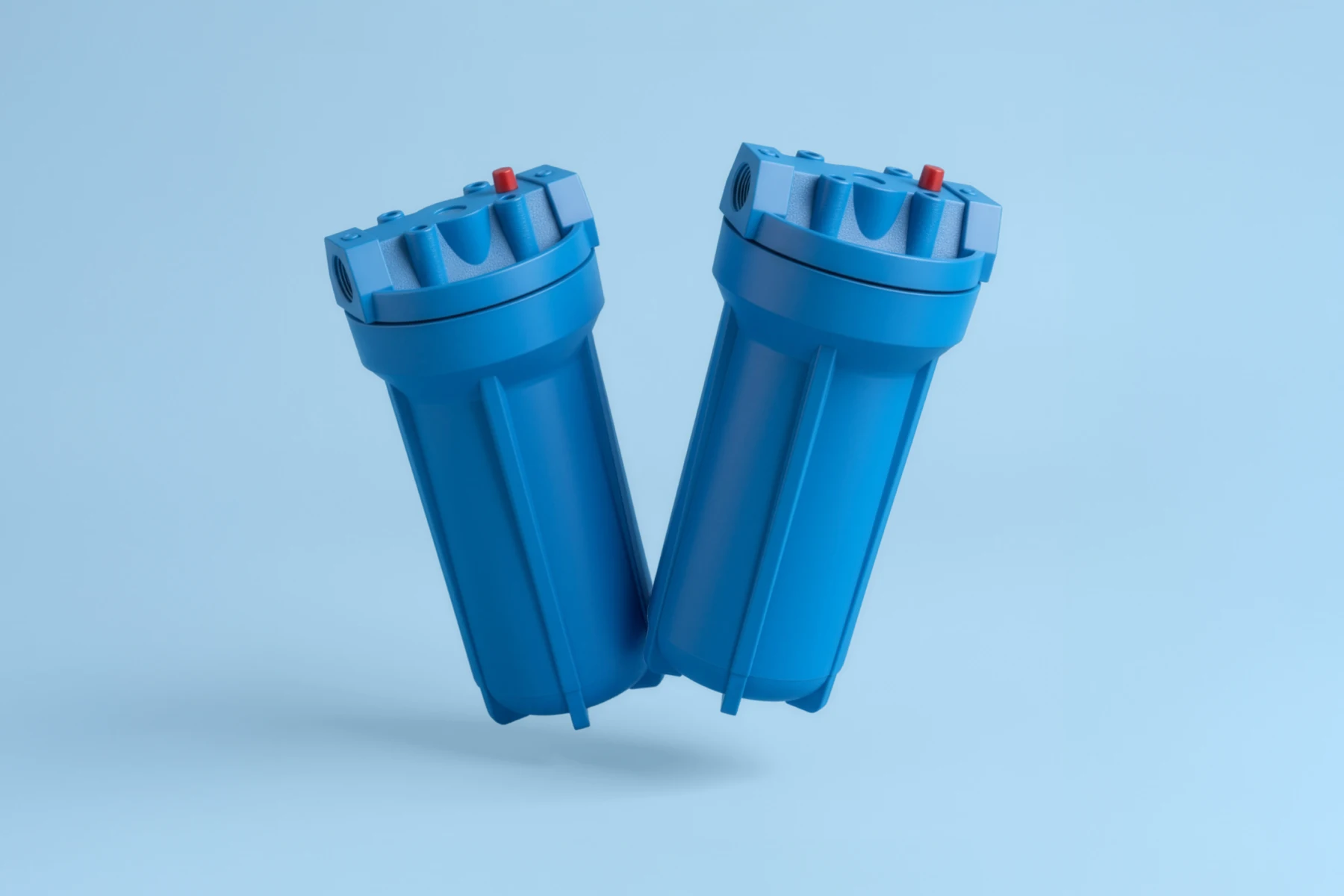When water looks cloudy or leaves grit behind, it’s usually a sign of sediment. Sediment itself isn’t unusual — it’s often made up of sand, dirt, rust, or organic particles — but it can cause real problems in your plumbing and water quality. That’s where sediment filters come in. These filters act as the first line of defense, trapping particles before they damage your pipes or appliances.
But here’s the catch: not all sediment water filters are the same. Each one is rated by “microns,” which determines the size of particles it can capture. Understanding sediment filter micron ratings is the key to choosing the right protection for your home or business.
What Are Micron Ratings in Sediment Filters?
A micron is one-millionth of a meter. To put it in perspective, a single human hair is about 70 microns thick. A micron water filter works by targeting particles of a specific size — or larger — in your water.
For example, a 20-micron filter removes larger grit and sand, while a 1 micron water filter catches much finer particles like rust or silt. Some filters use a nominal micron rating, meaning they capture most particles of that size, while others use an absolute micron rating, which guarantees removal of nearly all particles down to that size.
If you’d like a refresher on the basics of how sediment filtration works, Metro Water has you covered.
Common Micron Sizes Explained
Most sediment filters fall into a few common ranges:
- 50 micron filters: Catch sand, dirt, and large particles.
- 20 micron filters: Trap finer grit and visible sediment.
- 5 micron filters: A popular choice for homes, protecting appliances and improving clarity.
- 1 micron filters: Capture very fine sediment and even some cysts or microorganisms.
So, what’s the difference between a 1 micron and 5 micron water filter? A 5 micron water filter vs. 1 micron is usually less restrictive, meaning water flows more easily but very fine particles might pass through. A 1 micron filter provides maximum protection, but it may need more frequent replacement because it clogs faster.
Think of it like a coffee filter: the smaller the holes, the smoother the final product. The right choice depends on your water quality and goals.
Which Micron Sediment Filter Do You Need?
 Choosing the right filter starts with your water source. If you rely on well water, a sediment filter for well water is essential to remove sand, soil, and rust before it clogs your plumbing. A whole house sediment water filter is often best here, providing clean water throughout your home.
Choosing the right filter starts with your water source. If you rely on well water, a sediment filter for well water is essential to remove sand, soil, and rust before it clogs your plumbing. A whole house sediment water filter is often best here, providing clean water throughout your home.
For municipal systems, the level of turbidity is often lower, but sediment can still sneak in. If you’re connected to city supplies, it’s worth understanding your local setup and, if needed, considering municipal water filtration systems.
Not sure what size you need? Start by asking, what micron sediment filter do I need? The answer usually comes down to water testing.
Sediment Filters for Homes vs. Businesses
Sediment isn’t just a nuisance — it can cause expensive problems. For homeowners, sediment can lead to clogged pipes, cloudy water, and reduced pressure. A well-chosen sediment filter helps protect appliances like dishwashers, washing machines, and water heaters from unnecessary wear.
For businesses, especially restaurants, offices, and industrial operations, a commercial sediment filter can be the difference between reliable service and constant maintenance calls. Beyond quality and taste, sediment control is about cost savings too. Investing in proper filtration leads to long-term cost savings on filters and equipment.
Sediment Filter Replacement and Maintenance
Even the best filter won’t last forever. Most cartridges need sediment filter replacement every 6–12 months, depending on water quality. If you notice reduced water pressure or cloudy water returning, it may be time for a change.
Working with a water filter specialist ensures your filter is not only replaced on time but also matched correctly to your home or business needs.
Testing Water Quality Before Choosing a Filter
The best way to find out what filter you need is by testing your water. Professional home water quality testing or well water testing reveals the exact level of sediment and guides you to the right water filter micron size.
Once you know your numbers, it’s easier to choose confidently. That way, your filter isn’t too coarse to miss the problem — or too fine to constantly clog.
Choosing the Right Micron Size for Safe Drinking Water
The world of sediment filters may seem complicated, but it comes down to one simple truth: the right micron rating keeps your water clean, your pipes safe, and your appliances running longer.
Whether you need a whole house sediment water filter, a commercial sediment filter, or simply guidance on micron ratings, Metro Water Filter of the South has the experience to help. Schedule your free consultation today with our water filtration experts, and let us match you with the right solution for truly safe drinking water.



